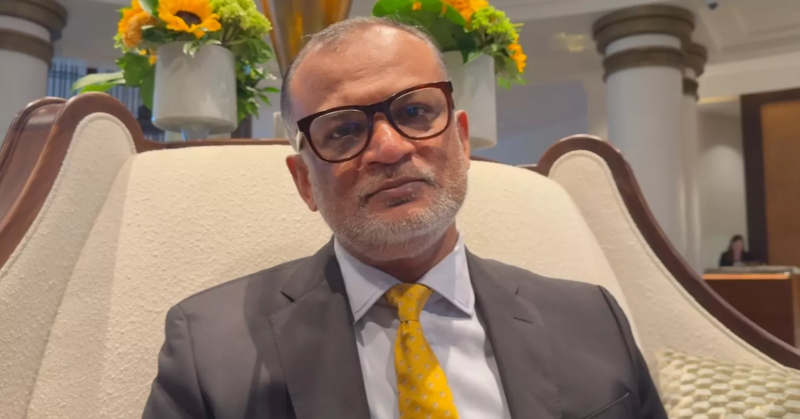- UN Chief Urges Action to Halt Mideast Escalation |
- Top Iranian Commanders Killed as Tensions Escalate |
- Multiple Arab states that host US assets targeted in Iran retaliation |
- Dhaka’s air quality 3rd worst in the world Sunday morning |
- Iran names 3-men body to cover transition as Khamenei’s dead |
Trade Deal Details to Be Shared with US Approval: Adviser

Commerce Adviser Sk Bashir Uddin has said that the details of the upcoming trade agreement with the United States will be disclosed after the signing of the deal—subject to the US government’s consent.
“In accordance with the Right to Information Act and the consent of the United States, we will definitely disclose the agreement,” he said, noting that a joint statement will be issued after the signing.
The adviser expressed disappointment over the premature leak of the agreement, stating, “It’s somewhat unfortunate. But there’s nothing in it that harms the country’s interest.”
He made these remarks during a conversation with Golam Mortoza, press minister at the Bangladesh Embassy in Washington, who later shared the discussion on social media.
Bashir Uddin stressed that provisions contrary to Bangladesh’s interests had been excluded and the agreement primarily involves the private sector.
He underscored the need to build national capacity to fully benefit from the deal. “There’s no room for complacency. The agreement’s success will depend on our capacity and competitiveness,” he said.
Regarding the rumoured deal on 25 Boeing aircraft, the adviser clarified that the matter was not part of the trade talks. “It was not raised by the US side. Boeing produced only 12 aircraft last year, so even under agreement, delivery might begin in 2037.”
He noted that the United States is more focused on expanding trade in agricultural products. Bangladesh, which imports $15–20 billion in food items annually, is exploring ways to reduce its trade deficit by increasing imports of US cotton, soybean, corn, and wheat.
The current trade deficit with the US stands at around $6 billion. The adviser said that by shifting a portion of agricultural imports to US sources, Bangladesh could potentially reduce this deficit by $2 billion.
"Boeing planes aren’t bought every day, but soybeans are,” Bashir remarked, downplaying the significance of aircraft purchases compared to daily agricultural imports.
He also highlighted the importance of enhancing the operational capacity of Biman Bangladesh Airlines, which he said could transport 10 million more passengers if properly supported—making the acquisition of 25 aircraft a reasonable target.
Dismissing claims of a secret deal in exchange for tariff reductions on Bangladeshi exports—from 35% to 20%—Bashir Uddin reiterated that all negotiations prioritised national interest.
“We’ve done nothing to compromise the country’s interest—just as the US prioritises its national security, we have prioritised ours,” he said.
He also noted that a Bangladeshi business delegation is currently visiting the US and assured that they will act in accordance with the country’s interests.

